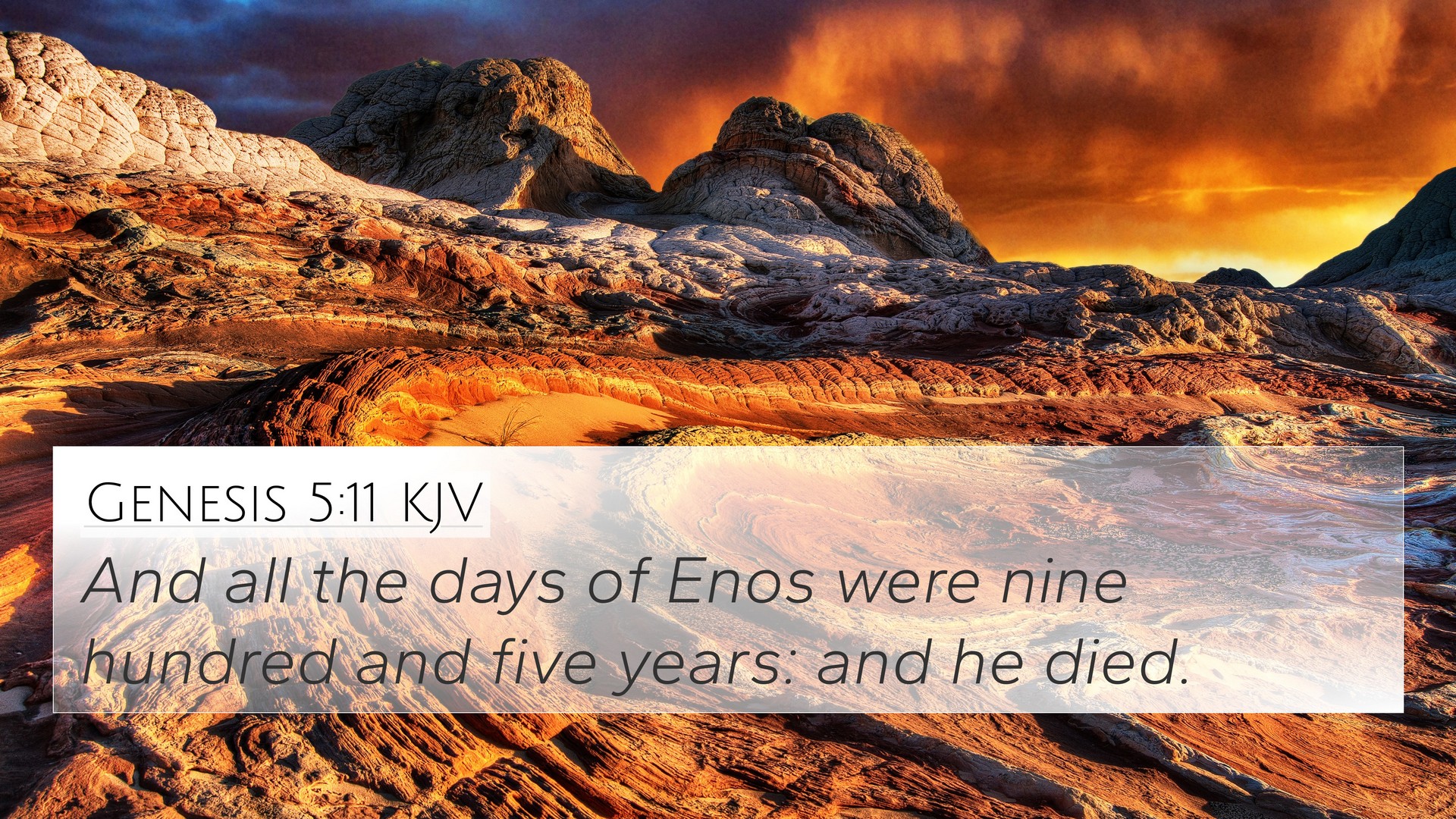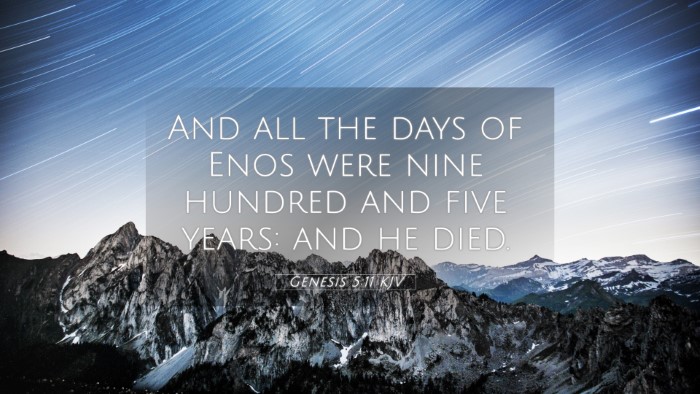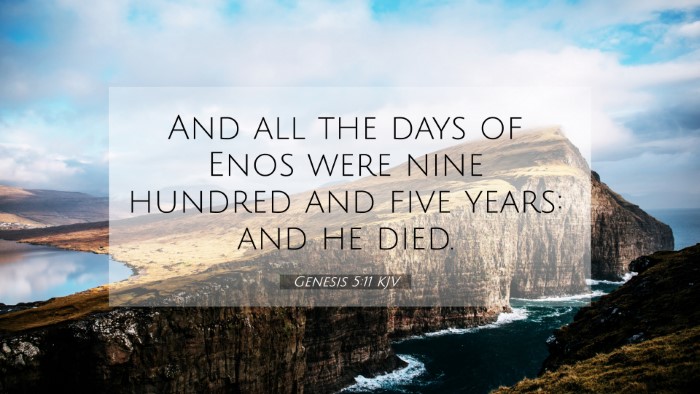Understanding Genesis 5:11
Genesis 5:11 states: "And all the days of Enosh were nine hundred and five years: and he died." This verse is part of the genealogical records in Genesis, specifically detailing the life span of Enosh, the son of Seth and grandson of Adam. The mention of his lengthy life and eventual death underscores key themes of mortality and the passage of time within the biblical narrative.
Commentary Insights
The commentaries provided by Matthew Henry, Albert Barnes, and Adam Clarke offer rich insights into the significance of this verse:
- Matthew Henry: Henry emphasizes the importance of genealogies in showcasing God’s faithfulness through generations. Enosh’s long life symbolizes the continuation of humanity and the divine promise post-Fall. He notes the repetitive mention of mortality, highlighting that each man must face death, reinforcing the transient nature of life.
- Albert Barnes: Barnes focuses on the brevity of life contrasted with the long ages recorded. He suggests that while individuals may live long, their ultimate fate is death, which serves as a reminder of God’s sovereignty over life and the human condition. The verse serves as a stepping stone for understanding the genealogical flow leading to Noah.
- Adam Clarke: Clarke points out that Enosh, whose name means "mortal man," is symbolic of human frailty. He relates Enosh's life span to the broader theological context of sin and redemption, noting that while Enosh lived for 905 years, death still claims all, demonstrating the long shadow of sin that Adam’s disobedience has cast on humanity.
Thematic Connections
This verse connects aptly with various themes across the Bible. The genealogy facilitates connections between individuals and their roles in biblical history, particularly in the Old Testament context leading to the New Testament fulfillment in Christ. Here are some pertinent Bible verse cross-references that relate to Genesis 5:11:
- Genesis 4:26: "And to Seth, to him also there was born a son; and he called his name Enos: then began men to call upon the name of the Lord." - Establishes the spiritual significance of Enosh's lineage.
- Ecclesiastes 3:20: "All go to one place; all are of the dust, and all return to dust." - Reflects on the inevitability of death.
- Hebrews 9:27: "And as it is appointed unto men once to die, but after this the judgment:" - Illustrates the biblical affirmation of mortality.
- Romans 5:12: "Wherefore, as by one man sin entered into the world, and death by sin; and so death passed upon all men, for that all have sinned:" - Links mortality directly to the Fall of man.
- 1 Corinthians 15:22: "For as in Adam all die, even so in Christ shall all be made alive." - Direct relation of Adam’s lineage to life through Christ.
- Genesis 6:3: "And the Lord said, My spirit shall not always strive with man, for that he also is flesh: yet his days shall be an hundred and twenty years." - Indicates a divine decree on human longevity reinforcing mortality.
- 1 Chronicles 1:1: "Adam, Sheth, Enosh," - Consolidates genealogical themes throughout the scripture.
- Psalm 90:10: "The days of our years are threescore years and ten; and if by reason of strength they be fourscore years, yet is their strength labour and sorrow; for it is soon cut off, and we fly away." - Comments on the transitory nature of life.
- Job 14:1-2: "Man that is born of a woman is of few days, and full of trouble. He cometh forth like a flower, and is cut down..." - Affirms the period of human life.
- Matthew 1:1-16: The genealogy of Jesus Christ, connecting back to Adam, showcasing the continuity of God’s covenant and promises through generations.
Conclusion
Genesis 5:11 is a poignant reminder of the human condition, reflecting both the longevity of life in the antediluvian period and the inevitability of death. The genealogical record not only serves as historical fact but also provides profound theological insights into God's plan through generations. In performing a comparative Bible verse analysis, we find that connections between this verse and others enrich our understanding of biblical themes related to life, death, and the overarching narrative of redemption.
Tools for Bible Cross-Referencing
If further exploration is desired, utilizing bible reference resources such as concordances, cross-reference guides, and Bible study tools can illuminate the connections and thematic elements present throughout Scripture.


